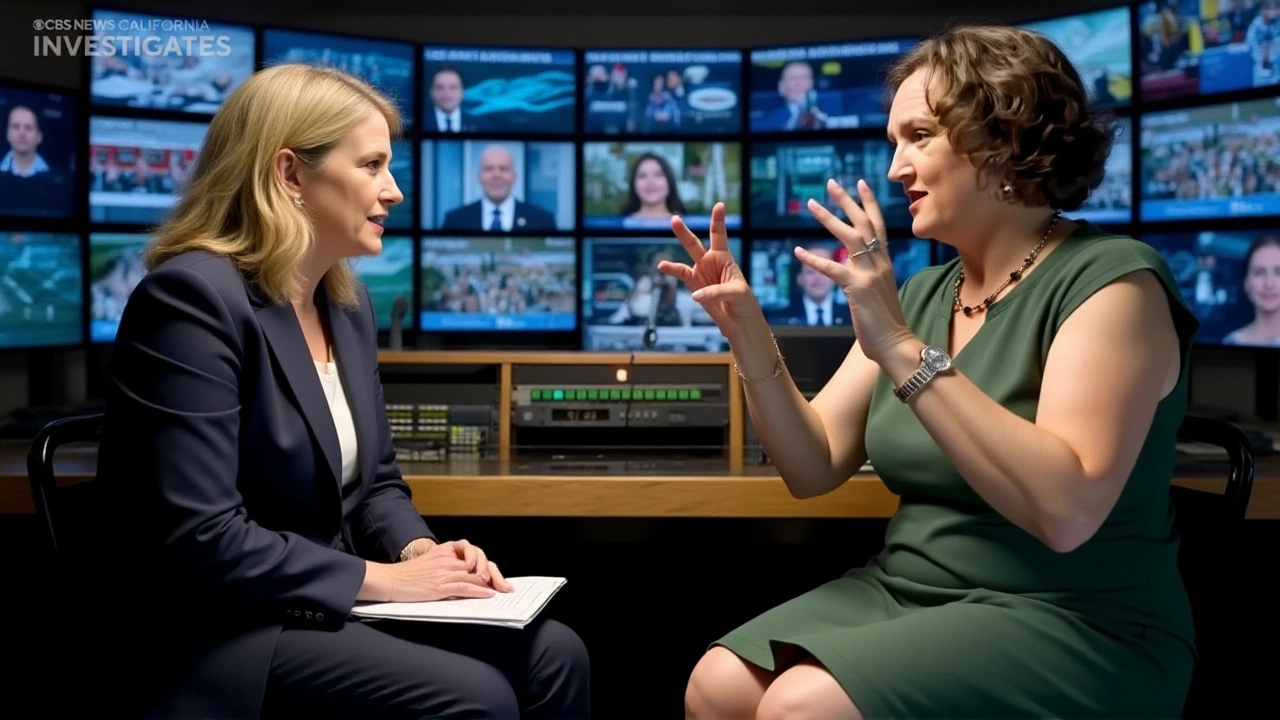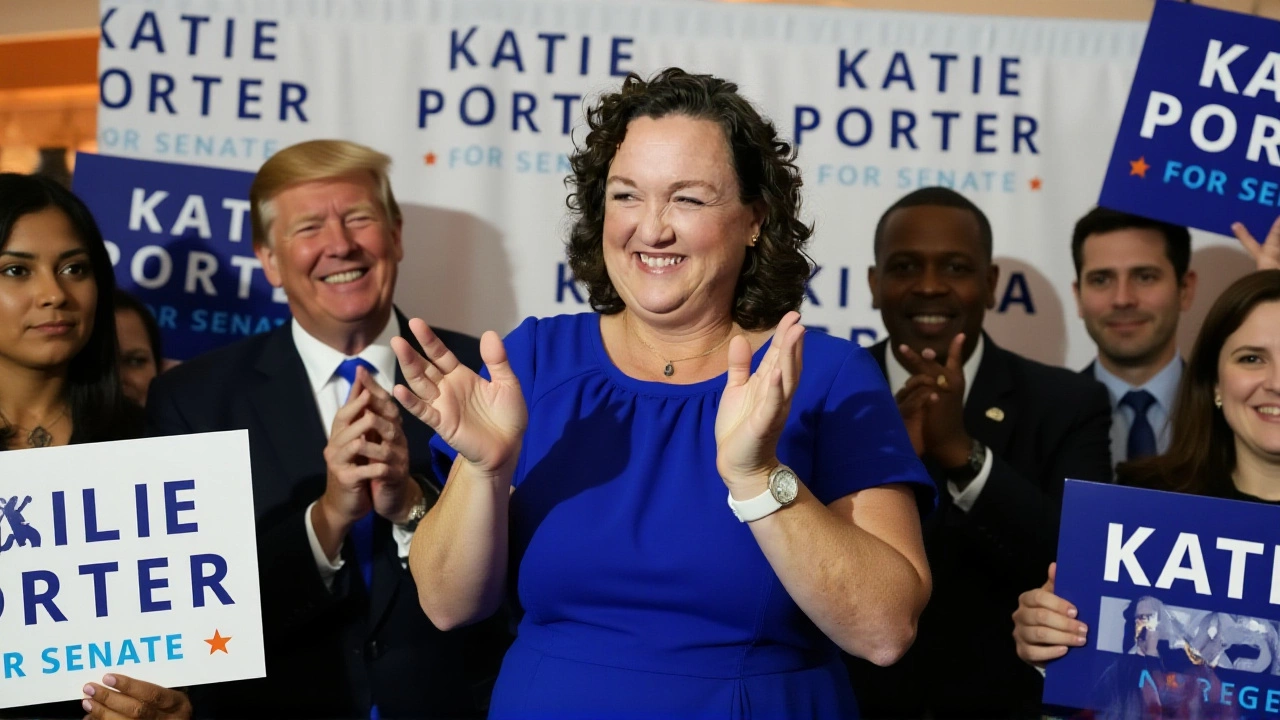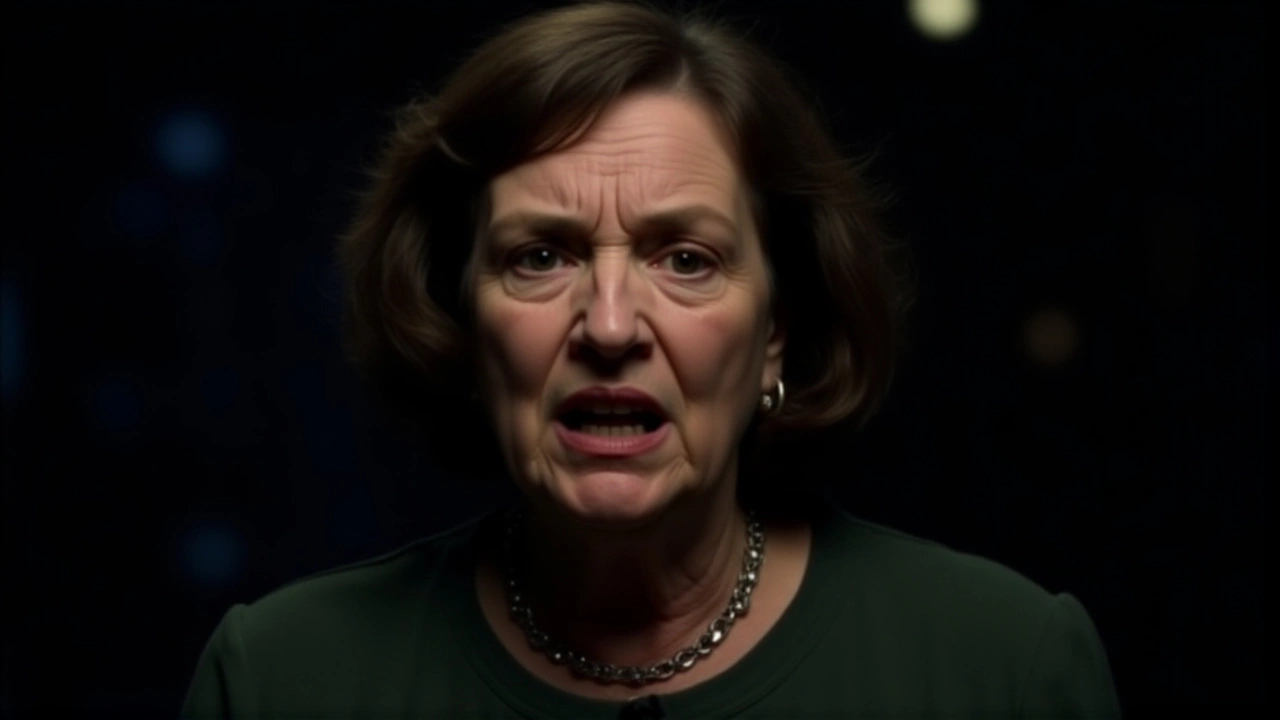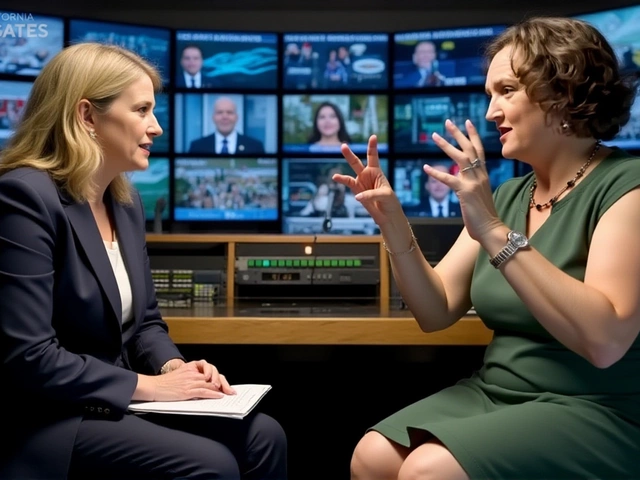Katie Porter threatens to quit CBS interview over Trump‑supporter question

When Katie Porter, former U.S. Representative from California was asked about voters who backed former President Donald Trump, she warned investigative correspondent Julie Watts that she would end the interview. The exchange, captured in a four‑minute‑plus video released by CBS News on October 8, 2025, quickly went viral, sparking a heated debate over how journalists should question elected officials about politically charged constituencies.
Background: Porter’s political trajectory
Porter, whose full name is Katherine Moore Porter, first won a seat in the U.S. House in 2018, representing California’s 45th district from January 3, 2019, until she lost to Republican Michelle Steel in the November 2022 midterms. Known for her sharp questioning in congressional hearings, Porter built a reputation as a consumer‑rights advocate and frequent challenger of corporate lobbying. Her tenure coincided with the 2020 presidential election, during which California’s electorate tilted heavily Democratic, yet pockets of Trump support persisted in inland and coastal suburbs.
The interview that ignited the fire
The video shows Watts, a veteran investigative reporter for CBS News, asking Porter a follow‑up question about why a growing segment of Californians still voted for Trump in 2024. "What do you make of the fact that a significant number of California voters supported President Trump in the last election?" Watts asked. Porter’s response began calmly but grew tense. At the 246‑second mark, she quipped, “It’s just a follow‑up question. You know that perhaps Katie Porter is being reminded of that,” before warning, “If this line of questioning continues, I’m walking out.” The clip ends a few seconds later with Watts acknowledging the public reaction the exchange had already generated.
How the clip blew up
Within hours, the clip was shared across Twitter, Instagram, and TikTok. By the next day, the video had amassed over 2.3 million views on YouTube, with thousands of users posting side‑by‑side reaction videos. Memes juxtaposing Porter’s stern stare with the phrase “Walk it off!” flooded feeds, while political commentators split down the line—some calling Porter’s stance a “defense of dignity,” others labeling it “avoidance of accountability.” The buzz wasn’t limited to the United States; CBS’s global streaming arm, CBS News 24/7, which broadcasts in 91 countries, reported spikes in traffic from the UK, Canada, and Australia.

Reactions from the players
Watts later appeared on CBS’s streaming talk show The Takeout, where she said, “The question was a follow‑up, but the reaction makes it clear how polarized the conversation around Trump voters has become.” She added that the clip’s virality was “a reminder that journalists have to tread carefully when probing politically sensitive topics.” Porter, in a brief statement released through her former office’s communication team, said, "I’m always willing to discuss policy, but I won’t let a single question be used to undermine the diverse voices of my former constituents." Political analysts at the Brookings Institution noted that Porter’s reaction underscores an emerging tension among former lawmakers who now serve as media pundits.
Why this matters for political discourse
At its core, the incident shines a light on a larger question: how should journalists interrogate elected officials about voter bases that are at odds with their own party’s platform? Media ethicist Dr. Lila Hernandez of Columbia Journalism School argues, "The public’s right to understand why a politician’s constituency includes controversial voters is undeniable, yet the framing must avoid weaponizing that demographic as a point of ridicule." The debate also touches on the evolving role of former legislators in the media ecosystem—many now act as commentators, analysts, and, occasionally, interview subjects.

What’s next?
Both CBS News and Porter have hinted at follow‑up coverage. CBS plans to air a panel discussion on its streaming platform next week, featuring experts on voter behavior and media ethics. Porter, meanwhile, has said she will focus on advocacy work with consumer‑rights groups and may appear on a podcast series about post‑congressional careers. The incident is likely to remain a touchstone in conversations about the balance between rigorous journalism and respectful dialogue.
- Key Fact: The interview clip was uploaded at 12:00 AM UTC on October 8, 2025.
- Porter served in Congress from 2019‑2023.
- Watts is an investigative correspondent for CBS News, a division of CBS Broadcasting Inc..
- The video’s YouTube view count topped 2.3 million within 24 hours.
- CBS News 24/7 reaches audiences in 91 countries via more than 30 platforms.
Frequently Asked Questions
How does this incident affect political journalists?
The clash highlights the fine line journalists walk when probing sensitive voter demographics. Experts say it may prompt newsrooms to develop clearer guidelines on phrasing questions about controversial electorates, aiming to protect both interview subjects and the integrity of the interview.
Who is Julie Watts and what is her role at CBS?
Julie Watts is an investigative correspondent for CBS News. She specializes in political deep‑dives and has contributed to flagship programs such as The Takeout and the network’s prime‑time news specials.
What prompted Watts to ask about Trump supporters in California?
During the interview, Watts was following up on an earlier discussion about the 2024 election results. She asked Porter why a sizable portion of Californians still voted for Trump, aiming to explore shifts in voter sentiment that could influence future campaigns.
How viral did the video become?
Within 24 hours, the clip garnered more than 2.3 million views on YouTube, spurred countless reposts on social media, and trended on Twitter under #PorterWalkout. The surge also drove a noticeable uptick in traffic to CBS News’s streaming service.
What are analysts saying about the broader impact?
Political analysts argue the incident may influence how former lawmakers approach media appearances, encouraging a more guarded stance. Media ethicists also see it as a case study for balancing tough questioning with respect for the diverse political views represented by a politician’s constituency.
- October 9, 2025
- Maddox Landry
- 0 Comments
- Permalink





Write a comment